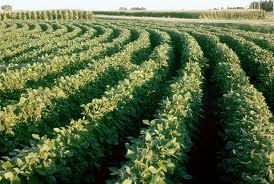

A wide variety of agriculture jobs exist, ranging from hands-on field work to complex positions in agricultural engineering. Specific job categories include agribusiness, agricultural inspection, agriscience, and farm work. Some positions are learned on the job, while others will require a college degree and specialized training.
Agriculture jobs in the business sector involve working with companies that grow and sell crops and livestock. The distribution, buying, and trading of produce may be supervised. The work typically includes marketing, price analysis, drafting contracts, and farm management. Most of these positions will require a four-year degree or higher, as well as good communication and people skills.
Agricultural inspectors often work for government offices that establish and enforce health and safety regulations regarding the food supply. These inspectors make sure that farms and processing plants are following the proper procedures where food safety is concerned. This usually involves testing livestock for harmful diseases and inspecting food for dangerous microbes and other contaminants.
An agricultural scientist works to improve the quality and safety of both farm animals and crops. These positions are often found in universities and research labs. The agricultural jobs may include improving farm equipment technology to increase the quantity and quality of goods, finding cures for diseases that affect livestock and crops, and discovering more effective methods of pest control. A strong background in science, math, and engineering is necessary for this position.
Farming was likely the very first agriculture job; in addition to crops and livestock, it may also involve specialized animal breeding. To ensure healthy crops, the art of plowing, planting, and fertilization must be learned for each crop type. The responsible use of pesticides is also important, as well as the routine maintenance of facilities and equipment. A production manager may be employed to oversee progress, while also finding ways to increase production using less time and money. Many farm positions are seasonal, employing extra workers during certain months to pick fruits and vegetables.
To trace the latest information in agricultural scenario and agro industry, agricultural, products, reserves, Indian importers, Trade Leads, business directories, catalogs and product reviews, www.made-from-india.com is the precise Indian Business to Business (B2B) portal. It maintains a large database of Indian Agricultural manufactures suppliers, India Agricultural products, Indian Farm Products, suppliers & producers of agricultural products including fertilizers, pesticides, animal feeds & extracts, agricultural product stocks, vegetable oil, Indian Agriculture information online news, irrigation equipment, machines & appliances, fruits & juices, edible products etc.





